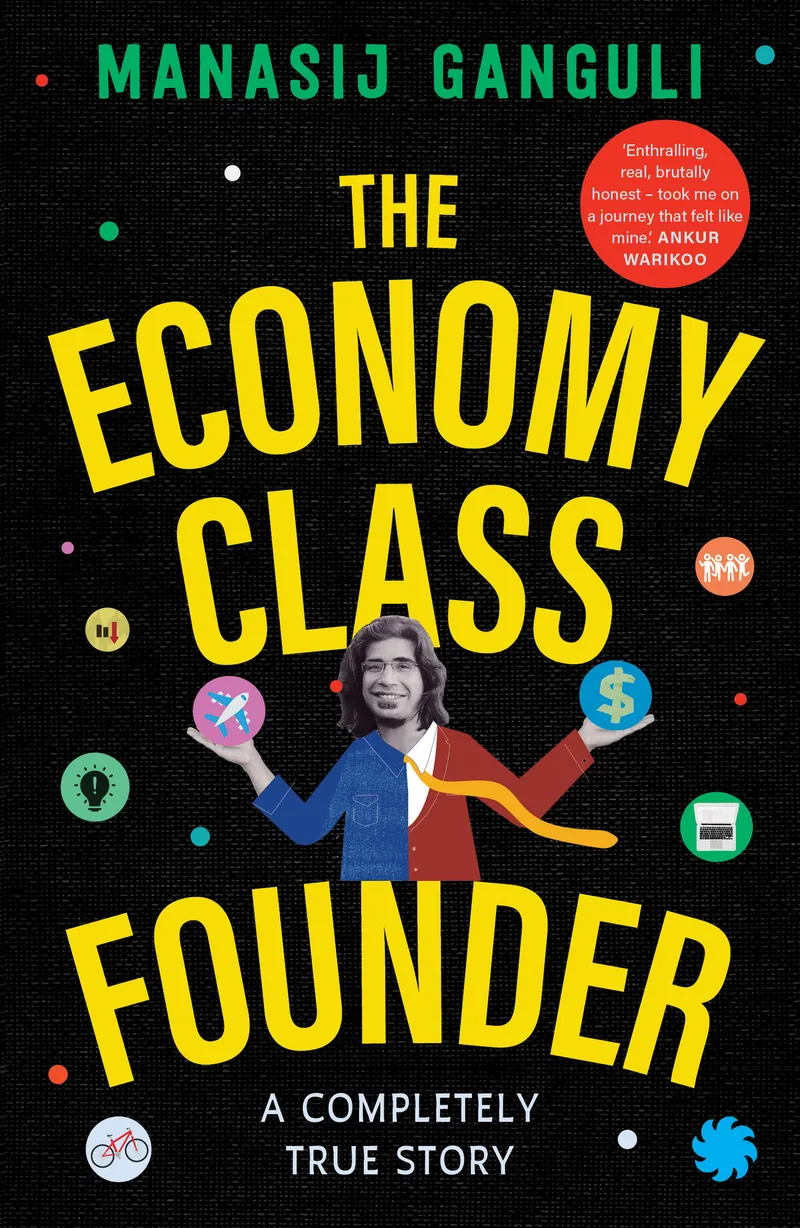The Economy Class Founder: A funny and riveting read on pain and passion of starting up
Entrepreneur-turned-author Manasij Ganguli’s The Economy Class Founder captures the reality of building a successful startup.
One can often find startups dominating business news coverage as they now have a significant impact on India’s economy. The passion to break out and build a sustainable, profitable business based on an original idea has spurned many Indians to quit well-paid or stable jobs and take a huge financial risk to create an original product.
In The Economy Class Founder, entrepreneur-turned-author Manasij Ganguli traces his journey of building Singapore-based startup Threadsol and an allied product despite a financial crunch and making personal sacrifices. Ganguli aptly captures his incredibly dramatic encounters in different countries and how he sold his company to make a glorious exit with humour and a chatty tone.
Even when he talks about complex personal choices, his tone never shifts—building a highly successful startup was worth almost every sacrifice and pain in the world.

Yellowface is a near-perfect satire on privilege, identity and spectre of social media trials
Building a startup without inherited capital is very hard. To stay on course is difficult as the going gets tough and the money dries up. To build the startup Ganguli teamed up with his wife, Mausmi; a close friend from a tech background, Abhishek Srivastava; and a younger tech wiz kid from his first job, Bratish. Together, they risked financial downfall when they quit jobs, pooled personal savings, and even cut down on the joys of living to ensure the startup had sufficient financial and human resources.
The Economy Class Founder reads entirely like a determined exercise in keeping budgets really tight so that one stays afloat. Ganguli’s struggle to build a market-worthy breakthrough product and find funding for it involved long bus rides from Bengaluru to Mumbai, living in $30 hotels in an unfriendly Shanghai neighbourhood, and both he and his wife cutting down on basic living expenses while never taking a single day off.
Working hard and keeping everything on such a tight budget brought pressure, but their team was so determined that they never quite let it break their spirit. Keeping the startup journey humane, Ganguli writes about sleepless nights and anxious moments when he faced looming financial downfall—like running out of money.
The book reflects the steely determination and perseverance of Ganguli, his wife, and the core team in building this company and scaling it despite the severe ups and downs.
Beyond the regular rigamarole of founding the startup through the painful initial processes, Ganguli’s book highlights the ‘caste-system’ of prejudice and preconceived notions prevalent across the startup culture. The writer of this review is familiar with the clannish culture of funding that marks the investment behaviour of some angel investors and early-stage VC funds in Mumbai. That this book calls this out through the founder’s experiences is useful, and ballsy.
It took multiple rejections, humiliations and false accusations of being unoriginal for the Threadsol team to land its first solid angel investment. While conversations around funding can give the impression that seed money is easy to land today with so much interest in the startup ecosystem, in reality, things can be quite different.
While contesting for startup and accelerator events across India and Sri Lanka, the lack of thought behind investment from angels and wealthy investors emerges clearly. In an ironic humorous reference, Ganguli refers to FOMO (Fear of Missing Out) that marks angel investors when they make a beeline to invest in the very same business that they rejected when a bigger fund gets in.
The book traces Ganguli and his team’s varied experiences—funny, scary and downright shocking—through different countries where garment manufacturing is an important economic function.
At one point, he addresses a personal choice that can only be termed difficult for his wife and him. Through the roller coaster ride of building the business and then finally selling it at a suitable time, Ganguli’s public speaking and communication abilities make this book flow naturally. He doesn’t project himself as a genius or a super successful whiz kid. Instead, he is just a normal person with big dreams and ambitions.
The Economy Class Founder is a breezy and engrossing read for those interested in startups, and for anyone who finds the world of business fascinating.
Rating: 4.5/5
Edited by Kanishk Singh







